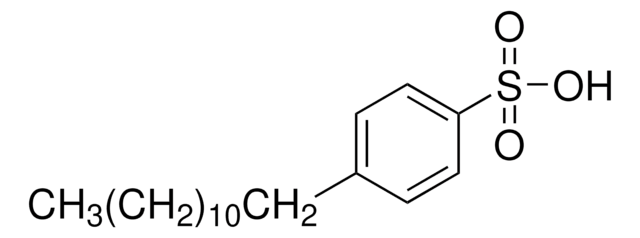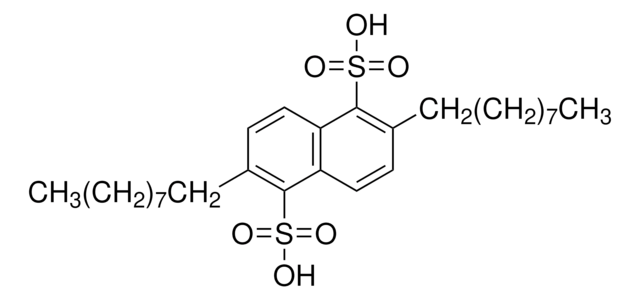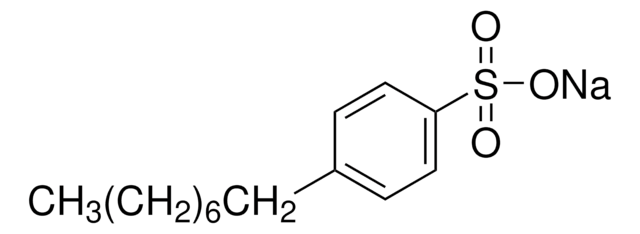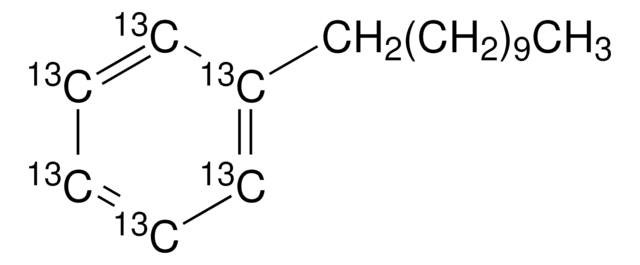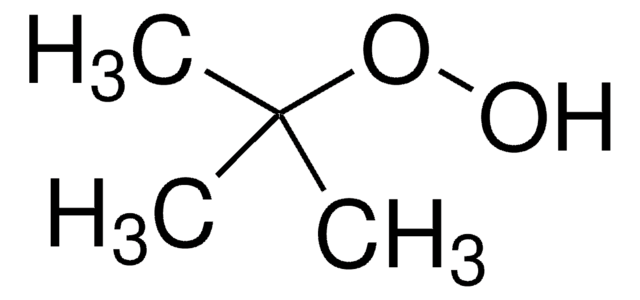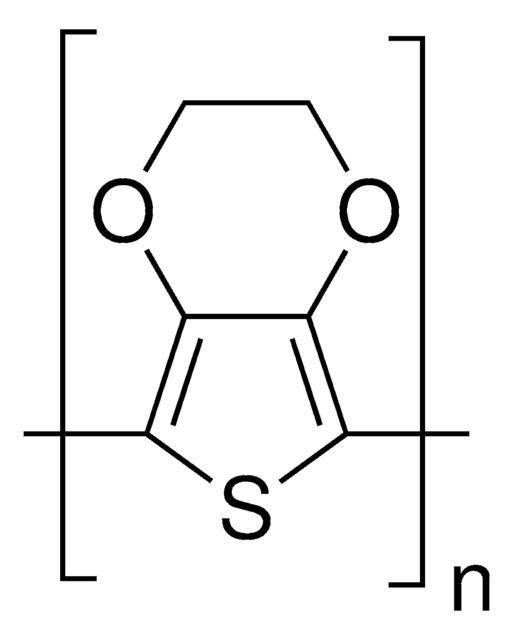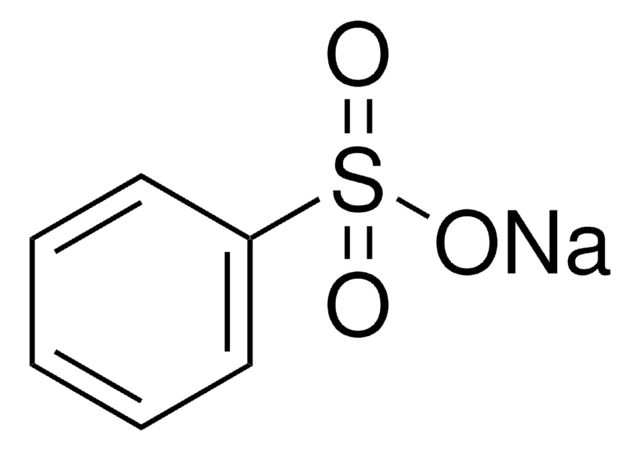522953
Dodecylbenzenesulfonic acid solution
70 wt. % in isopropanol
Synonyme(s) :
Dodecylbenzenesulfonic acid
About This Item
Produits recommandés
Niveau de qualité
Concentration
70 wt. % in isopropanol
Indice de réfraction
n20/D 1.479
pb
82 °C
Solubilité
water, alcohols, glycol ethers, glycols, esters, ketones, aromatic and aliphatic hydrocarbons: soluble
Densité
0.992 g/mL at 25 °C
Température de stockage
2-8°C
Chaîne SMILES
CCCCCCCCCCCCc1ccc(cc1)S(O)(=O)=O
InChI
1S/C18H30O3S/c1-2-3-4-5-6-7-8-9-10-11-12-17-13-15-18(16-14-17)22(19,20)21/h13-16H,2-12H2,1H3,(H,19,20,21)
Clé InChI
KWXICGTUELOLSQ-UHFFFAOYSA-N
Catégories apparentées
Description générale
Application
Conditionnement
Mention d'avertissement
Danger
Mentions de danger
Classification des risques
Acute Tox. 4 Oral - Eye Dam. 1 - Flam. Liq. 3 - Skin Corr. 1B - STOT SE 3
Organes cibles
Central nervous system
Code de la classe de stockage
3 - Flammable liquids
Classe de danger pour l'eau (WGK)
WGK 2
Point d'éclair (°F)
129.2 °F - closed cup
Point d'éclair (°C)
54 °C - closed cup
Faites votre choix parmi les versions les plus récentes :
Déjà en possession de ce produit ?
Retrouvez la documentation relative aux produits que vous avez récemment achetés dans la Bibliothèque de documents.
Les clients ont également consulté
Global Trade Item Number
| Référence | GTIN |
|---|---|
| 522953-500ML | 4061832547985 |
Notre équipe de scientifiques dispose d'une expérience dans tous les secteurs de la recherche, notamment en sciences de la vie, science des matériaux, synthèse chimique, chromatographie, analyse et dans de nombreux autres domaines..
Contacter notre Service technique